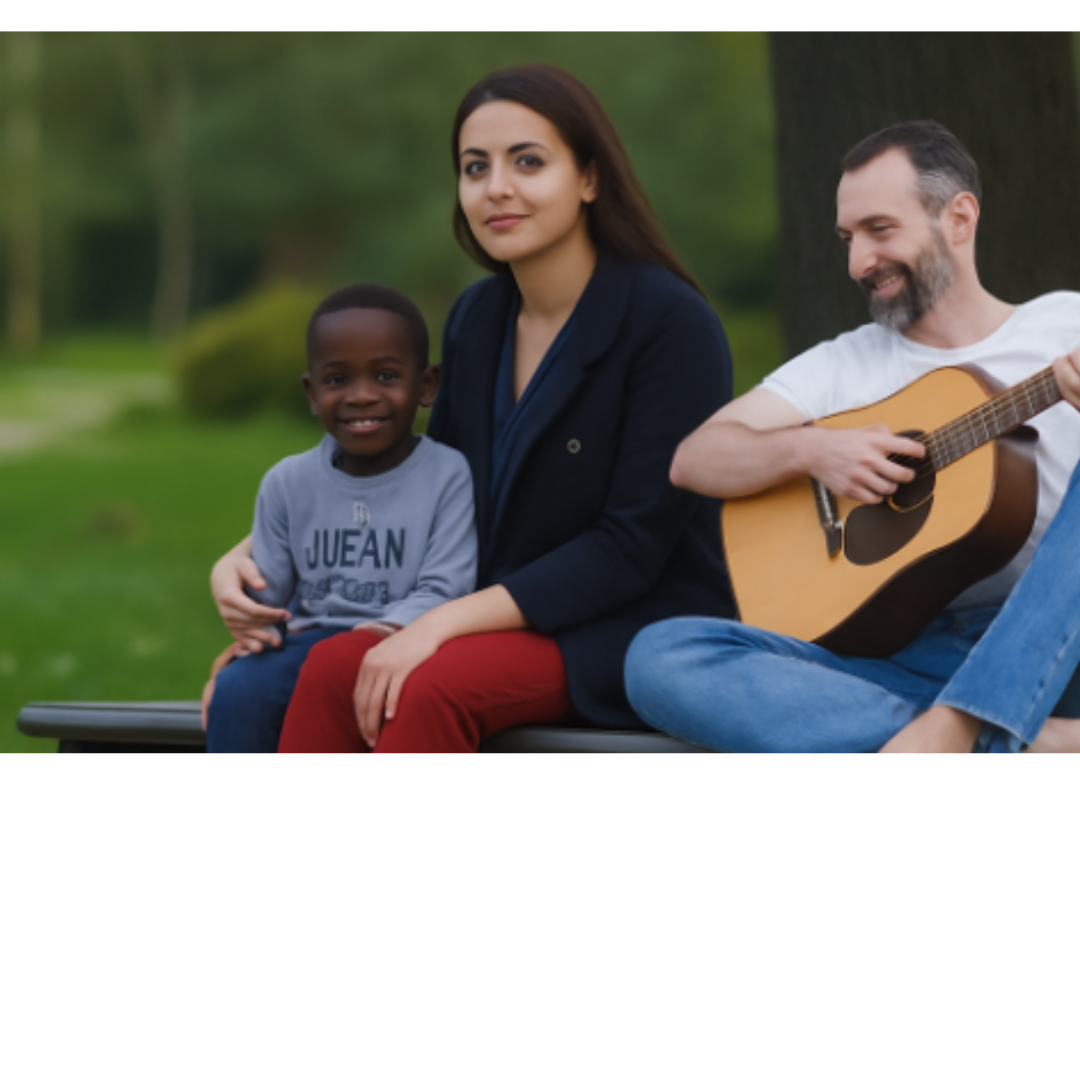
There are moments in parenting that catch you completely off guard. Some bring laughter, some bring tears, and others bring lessons you didn’t know you needed. Recently, I had one of those moments with Marcus.
We were at a park, climbing to the top of a hill. It was a warm, beautiful day, and Marcus, full of energy, charged ahead of me and my sister. We called after him, but he was too quick for us to keep up. By the time we reached the top, Marcus was already there—and what he did next left me speechless.
At the top of the hill, a couple sat on a park bench. The man was strumming his guitar while the woman listened peacefully, enjoying the simple gift of music outdoors. Without hesitation, Marcus walked straight over, sat between them, and rested his tired head on the woman’s chest.
My sister reached him before I did, apologizing to the couple and trying to coax Marcus away. But he refused. He was comfortable, safe, and connected in that innocent, unfiltered way that children on the spectrum often express. It wasn’t until I reached the top and softly said, “Let’s go, Marcus,” that he finally got up.
That moment reminded me of something powerful: children are valuable beyond measure. They see the world differently. They love openly, without fear of judgment. They trust without hesitation.
For a child on the autism spectrum, expressions of connection may not look like ours, but they are deeply meaningful. Marcus didn’t worry about social rules or “what people would think.” He simply sought comfort in the most natural way he knew how.
And that is something precious.
I am also deeply grateful for people like that couple—strangers who, even if surprised, didn’t push Marcus away, didn’t scold him, didn’t make us feel ashamed. Instead, they allowed a child to be a child.
In a world that isn’t always kind to differences, it matters when people recognize the humanity of children like Marcus. It matters when they offer patience instead of judgment, compassion instead of criticism, and protection instead of rejection.
To those people out there—whether you are the stranger at the park, the store cashier, the teacher, or the neighbor—thank you. Your kindness makes the world safer for children who are vulnerable.
All children deserve to be valued, respected, and protected. For children on the spectrum, this is especially important, because they often face misunderstandings in public spaces. Every act of compassion reminds us that these children are not just “different”—they are extraordinary.
When society protects and embraces them, we don’t just support one child—we strengthen families, communities, and our shared humanity.
As parents, it’s natural to feel embarrassed or apologetic in moments like this. But I’ve learned that instead of shame, we can choose gratitude. Gratitude for strangers who see our children as treasures, not burdens. Gratitude for the opportunities these moments give us to educate others about autism and the importance of acceptance.
For parents, it can also help to prepare a simple sentence when strangers seem surprised: “He’s on the spectrum, and this is how he shows connection.” Turning awkward moments into teachable ones can build understanding instead of shame.
And as communities, we can choose to protect every child—because every child, whether neurotypical or on the spectrum, carries immeasurable worth.
That day on the hill reminded me that children, especially those on the spectrum, teach us some of life’s most valuable lessons. They remind us to slow down, to love without conditions, and to recognize the value of every person.
Moments like these remind me why advocacy matters—because every act of kindness opens the door to a more inclusive world. 💙